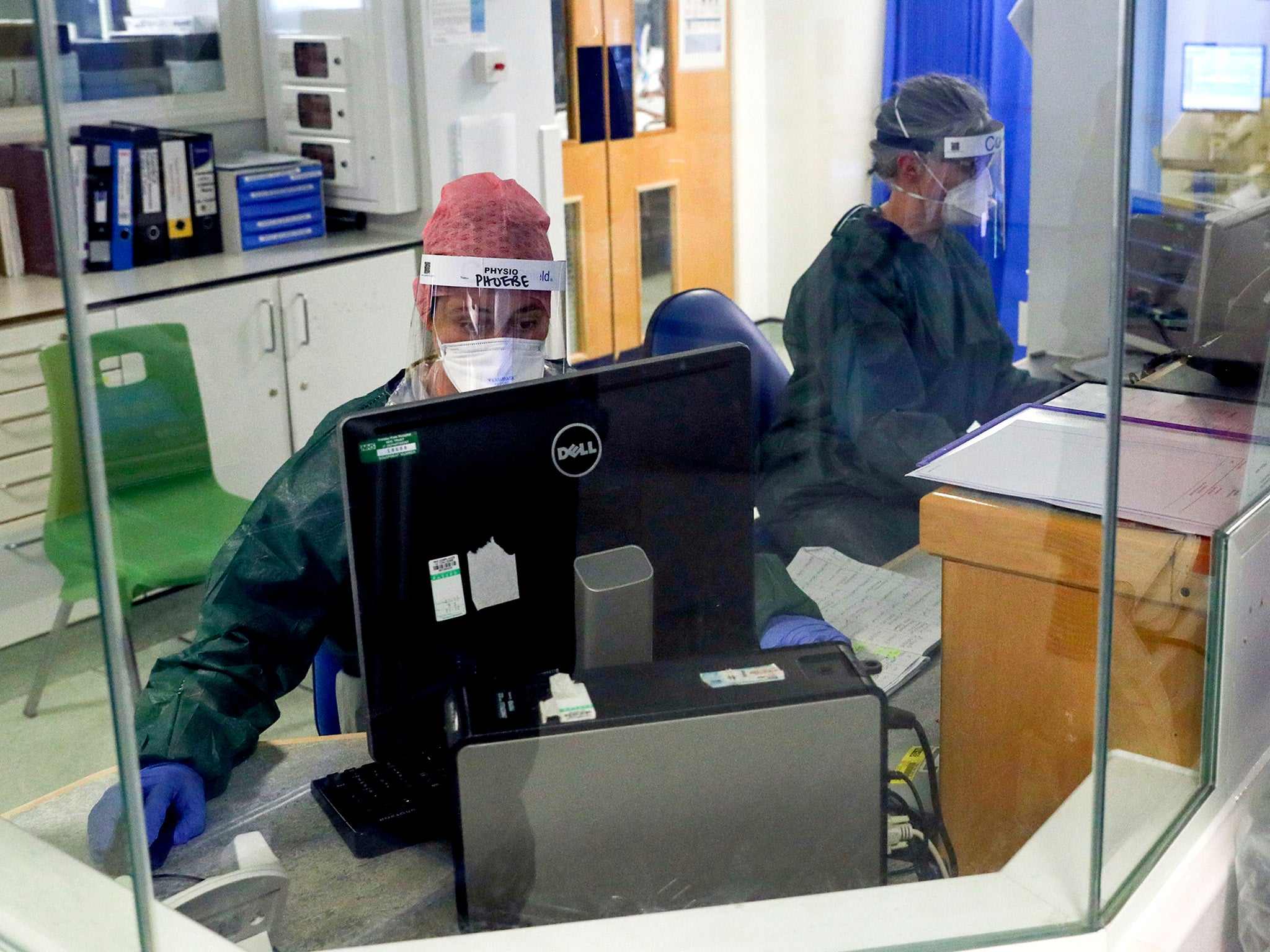There is nothing to fear in giving our data to the NHS
If a lot of people opt out of their data being used, the remaining data becomes unreliable as we can no longer be confident that our research findings reflect our society as a whole

Your support helps us to tell the story
From reproductive rights to climate change to Big Tech, The Independent is on the ground when the story is developing. Whether it's investigating the financials of Elon Musk's pro-Trump PAC or producing our latest documentary, 'The A Word', which shines a light on the American women fighting for reproductive rights, we know how important it is to parse out the facts from the messaging.
At such a critical moment in US history, we need reporters on the ground. Your donation allows us to keep sending journalists to speak to both sides of the story.
The Independent is trusted by Americans across the entire political spectrum. And unlike many other quality news outlets, we choose not to lock Americans out of our reporting and analysis with paywalls. We believe quality journalism should be available to everyone, paid for by those who can afford it.
Your support makes all the difference.Whether you’ve had Covid-19 or not, there’s a good chance your electronic medical record has been vital in helping the NHS to fight back. I’ve spent the last 15 years doing medical research using pseudonymised electronic medical records but it may surprise many people to know this kind of research has been happening since the late 1980s.
The resulting benefits to patients have been enormous, from disproving the link between the MMR jab and autism, to uncovering the previously unknown long-term risks of heart disease in people who successfully recover from cancer. Over the last few years there has been much debate about what Britain is great at, but here is one area where we genuinely are the envy of many other nations. Our centrally organised NHS means the wealth of data collected as part of routine care is an incredibly rich resource which can be used to generate evidence that will improve our health and even life expectancy.
But here’s the crux – the data is only useful if it is complete. If a lot of people opt out of their data being used, the remaining data becomes very unreliable as we can no longer be confident that our research findings reflect our society as a whole. We’ve all seen during the pandemic how the availability of timely and complete data can save lives. Without knowing who was at risk of severe Covid-19, we couldn’t have known who to prioritise in the vaccination campaign, and without good data, we couldn’t have done the research to find out. This is where both my and your medical records may well have contributed and I think it’s something we can feel justifiably proud of.
Understandably, we are all becoming more wary about who has access to our sensitive information, whether it’s financial, social or medical, and this is a good thing. In theory, the electronic medical record data that I use for medical research could be misused to re-identify individuals if I knew enough about their medical history. However, this would be a criminal act and, as far as I’m aware, has never happened. Strict data governance ensures that only trusted researchers can use these data to answer valid scientific questions and with data held securely.
The recent plan for NHS Digital to collect all GP data for research has brought this issue into people’s minds and has led to alarm in many quarters. What matters right now is that we are open and transparent about plans for what can be done with data, how it is done, who is doing it, and to what purpose. I’m glad there has been a pause in the rollout of this initiative as it makes space for an honest conversation.
Rapid developments in data science mean we will no longer need to transfer large volumes of data around in order to use it for research. Instead we will be able to access data within secure, central systems or write analytical code that will query the securely held data and give us the answers we need without compromising on privacy and security. The well-established principles we’ve worked to for many years need to continue, ensuring all research being done with the data is for valid reasons and will lead to patient benefit. For us all to feel happy to allow access to our sensitive and valuable health data we should expect the methods used to be the best available and equal to the task.
Our amazing NHS was founded on the principle that care would be available free of charge at the point of need, and over 70 years later is still committed to this. One thing we can all give back freely is the permission to use our precious medical records to improve the healthcare of each other. To do so, we have to be able to trust that the systems in place work well and I hope the pause in progress with the General Practice Data for Planning and Research project will ensure this is the case.
Ian Douglas is an expert pharmacoepidemiologist at London School of Hygiene and Tropical Medicine
Join our commenting forum
Join thought-provoking conversations, follow other Independent readers and see their replies
Comments